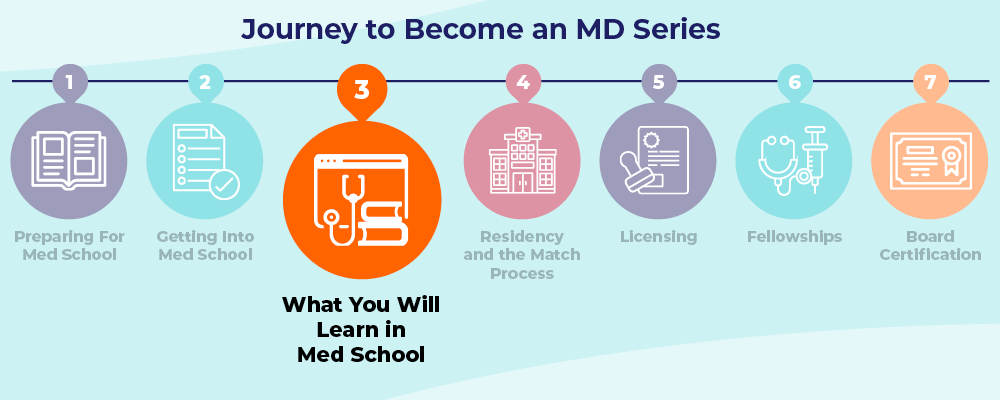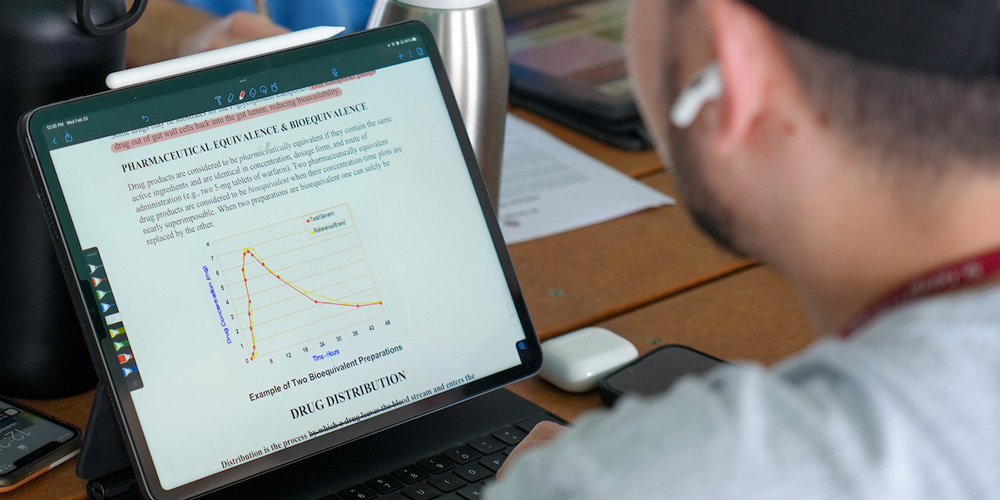
Once you begin a four-year medical school program, your time there will be roughly split between two years of learning the foundational sciences and two years of hands-on training in a clinical setting. At SGU, students are given the opportunity to complete their clinical rotations at 75+ hospitals and health systems in the US, UK, and Canada.
Get an inside scoop on what to expect during your first semester of med school. This section will share resources to help you feel ready and assured going into your first day of classes.
- 6 things good medical schools have in common
- Medical school rankings: How are they calculated and how much do they matter?
- Medical school acceptance rates: How much do they really matter?
Preparing for your first semester
Gearing up to start medical school? In the journey to become an MD, medical school is an exciting stepping stone where you will truly delve headfirst into all things health and medicine. Embarking on this new stage, of course, means having to adjust to the demands a new routine. We’ve compiled some resources to help you get a sense of the med student experience.
Explore preparing for your first semester
Medical School Curriculum
Although there are other tracks, a four-year medical school curriculum includes two years of foundational sciences followed by two years of clinical training. The setup of the program was developed to prepare aspiring physicians through rigorous coursework, hands-on experience, and patient interactions.
Explore Curriculum Insights
Clinical Rotations
During medical school, clinical rotations are crucial for hands-on experience. It is the time when you will apply your theoretical knowledge to real-life settings. During this time, you will also develop patient care skills and gain exposure to various medical specialties. This immersive training is essential for preparing you to become a competent and confident physician.
Explore Clinical Rotations
The holistic review: What it means for your med school application
There’s more to evaluating medical school applications than GPAs and test scores. Comprehensive programs such as SGU’s School of Medicine incorporate holistic reviews that consider experiences and character in tandem with academic metrics. Learn more about what a holistic review means for your medical school application.

